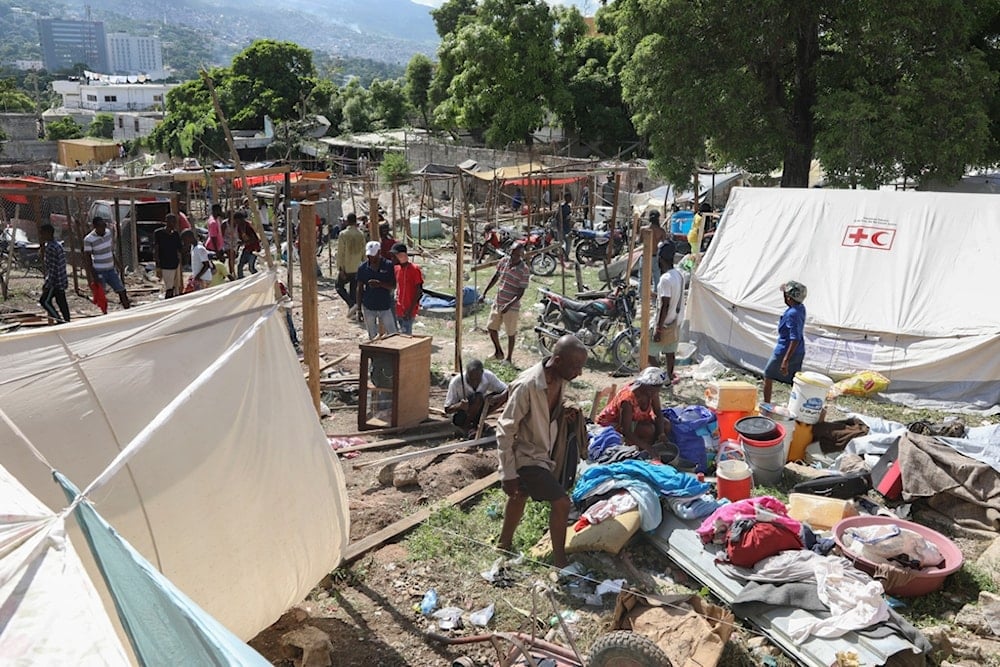Over 20,000 displaced in escalating Haiti gang violence
Of those displaced, around 17,000 were already in temporary shelters, many having been forced to relocate multiple times due to ongoing unrest.
-

Residents of the Nazon neighborhood displaced by gang violence construct a tent encampment, in Port-au-Prince, Haiti, Friday, November 15, 2024 (AP)
Over 20,000 residents have fled their homes across Haiti's capital within the last four days due to escalating gang violence, the United Nations’ International Organization for Migration (IOM) reported Saturday as armed groups take more control of much of the city and violence is rife.
"The isolation of Port-au-Prince is amplifying an already dire humanitarian situation," said Gregoire Goodstein, IOM’s head in Haiti. He warned that international assistance is crucial, saying, "Our ability to deliver aid is stretched to its limits. Without immediate international support, the suffering will worsen exponentially."
Of those displaced, around 17,000 were already in temporary shelters, many having been forced to relocate multiple times due to ongoing unrest. The IOM noted that such a high level of displacement has not been seen since August 2023.
Haiti’s leadership recently shifted as Prime Minister Alix Didier Fils-Aime took office on Monday, succeeding Garry Conille, who had been appointed in May but soon faced a power struggle with the country’s transitional council.
Despite the arrival of a Kenyan-led international force aimed at aiding Haiti’s outmatched police, violent crime remains rampant in Port-au-Prince, where gangs control approximately 80% of the city. Gang violence in the capital has led to nearly 4,000 deaths this year alone, according to the UN human rights office.
Kidnappings and sexual violence continue to afflict communities, displacing over 700,000 people, half of whom are children, according to the International Organization for Migration.
The crisis worsened last week when the United States suspended all civilian flights to Haiti for a month after three airplanes near Port-au-Prince were struck by gunfire, cutting off a vital link for the country, further isolating it from the outside world and intensifying the difficulties faced by its residents.
Prime environment for violence
Since the beginning of October, gangs have been focusing their efforts on multiple districts in Port-au-Prince, with attacks persisting in Solino. Gangs attacked a school in L'Estere, which led to the death of a parent and injuries to several children.
According to a report from Human Rights Watch (HRW), Haitian armed gangs are also enlisting starving children to strengthen their ranks in preparation for a prolonged and violent clash with international security forces.
The rights organization stated that the armed groups, which dominate much of Haiti, are luring hundreds, if not thousands, of impoverished children to join their ranks with promises of food and shelter.
HRW reports that as many as 30% of Haitian gang members are now children who have been coerced into illegal activities, serving as armed soldiers, spies, or being exploited for sexual purposes.
Earlier in October, a gang assault on Pont-Sonde resulted in at least 109 fatalities and over 40 injuries. Meanwhile, powerful gangs control 80% of Port-au-Prince and the major roads in the country.

 3 Min Read
3 Min Read










